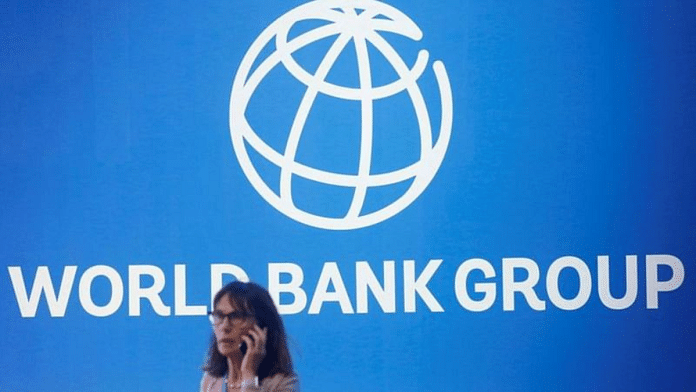New Delhi: Public authorities around the world should create frameworks to establish Digital Public Infrastructure (DPI) to accelerate financial inclusion and mitigate potential risks associated with financial consumer protection, the World Bank has recommended to the G20.
The report, titled G20 policy recommendations for advancing financial inclusion and productivity gains through digital public infrastructure, included inputs from India’s Ministry of Finance and Reserve Bank of India (RBI) and was released earlier this week.
The World Bank in the report said that while DPI has the potential to help countries accelerate their digital transformation, hasten financial inclusion, and close existing gaps in digital financial services, they can also introduce fresh risks and exacerbate existing ones if not designed using good principles and global standards.
DPI basically refers to the tech-based platforms that allow governments to provide key services to the public.
According to the report, about 1.4 billion adults globally remain financially excluded, over 50 percent of which are in seven emerging markets and developing economies (EMDEs). “Globally, pockets of exclusion and limited usage of financial services persist,” the report said.
While what constitutes a DPI can vary from country to country, some examples of DPI include India’s Unified Payments Interface (UPI) platform for digital payments, the Aadhaar-enabled digital identification platform, and data exchange platforms like Digilocker.
Together, these and several other platforms that India has developed, are called the ‘India Stack’ — a reference to the fact that these platforms can often ‘stack’ upon each other to further enhance the benefits they can provide.
Also Read: G20 to IMF, why global players want to replicate India’s Digital Public Infrastructure
Objective & recommendations
Stating that the objective of the report is to analyse the role of DPI in advancing financial inclusion, and formulate policy recommendations for how countries can best harness this potential, the World Bank said that, if well managed, DPIs can lower transaction costs, catalyse innovation, foster competition and interoperability and enhance individual user experiences and choice.
Through their design, it can also provide new avenues to address many of the risks inherent to digital financial services, it added.
“Each country will face different challenges and opportunities, given its specific context,” the report said.
“However, the analysis and policy recommendations in this report aim to provide general guidance that can help authorities in promoting the development, ongoing functioning, and evolution of DPIs in a way that contributes to advancing financial inclusion and productivity gains rapidly,” it noted.
The policy recommendations in the report include enabling and fostering responsible use of DPIs, including encouraging the private sector to leverage DPIs as well as encouraging public authorities to collaborate with private institutions to support skill development.
It also recommends developing well-designed DPIs and a broader enabling environment through a widely accepted set of good practices, and encouraging appropriate risk-based regulation, supervision, and oversight arrangements for the financial sector’s use of DPIs.
The report also recommends promoting sound internal governance arrangements that could include an objective to act in public interest and enable DPIs to offer products and services in a way that no one is left behind and the interests of the consumer are safeguarded.
‘Can support health, education’
In her foreword to the report, Queen Máxima of the Netherlands, the United Nations Secretary-General’s Special Advocate for Inclusive Finance for Development (UNSGSA) and Honorary Patron of the G20 Global Partnership for Financial Inclusion (GPFI), noted that the impact of DPI goes beyond inclusive finance. It can also support health, education, and sustainability.
“Amid the Covid-19 pandemic, DPI enabled emergency support to be directly delivered to the digital wallets of those in need and helped facilitate swift vaccine distribution. The India Stack exemplifies this approach, combining digital ID, interoperable payments, a digital credentials ledger and account aggregation,” she stated.
The report also noted that in India, the implementation of DPIs such as Aadhaar, along with the Jan Dhan bank accounts and mobile phones, is considered to have played a “critical role in moving ownership of transaction accounts from approximately one-fourth of adults in 2008 to over 80 percent now — a journey that it is estimated could have taken up to 47 years without DPIs”.
“While DPI’s role in this leapfrogging is undoubtable, other ecosystem variables and policies that build on the availability of DPIs were critical. These included interventions to create a more enabling legal and regulatory framework, national policies to expand account ownership, and leveraging Aadhaar for identity verification,” the report added.
(Edited by Richa Mishra)
Also Read: Go beyond Africa — India’s digital public infrastructure should be taken to the West now



